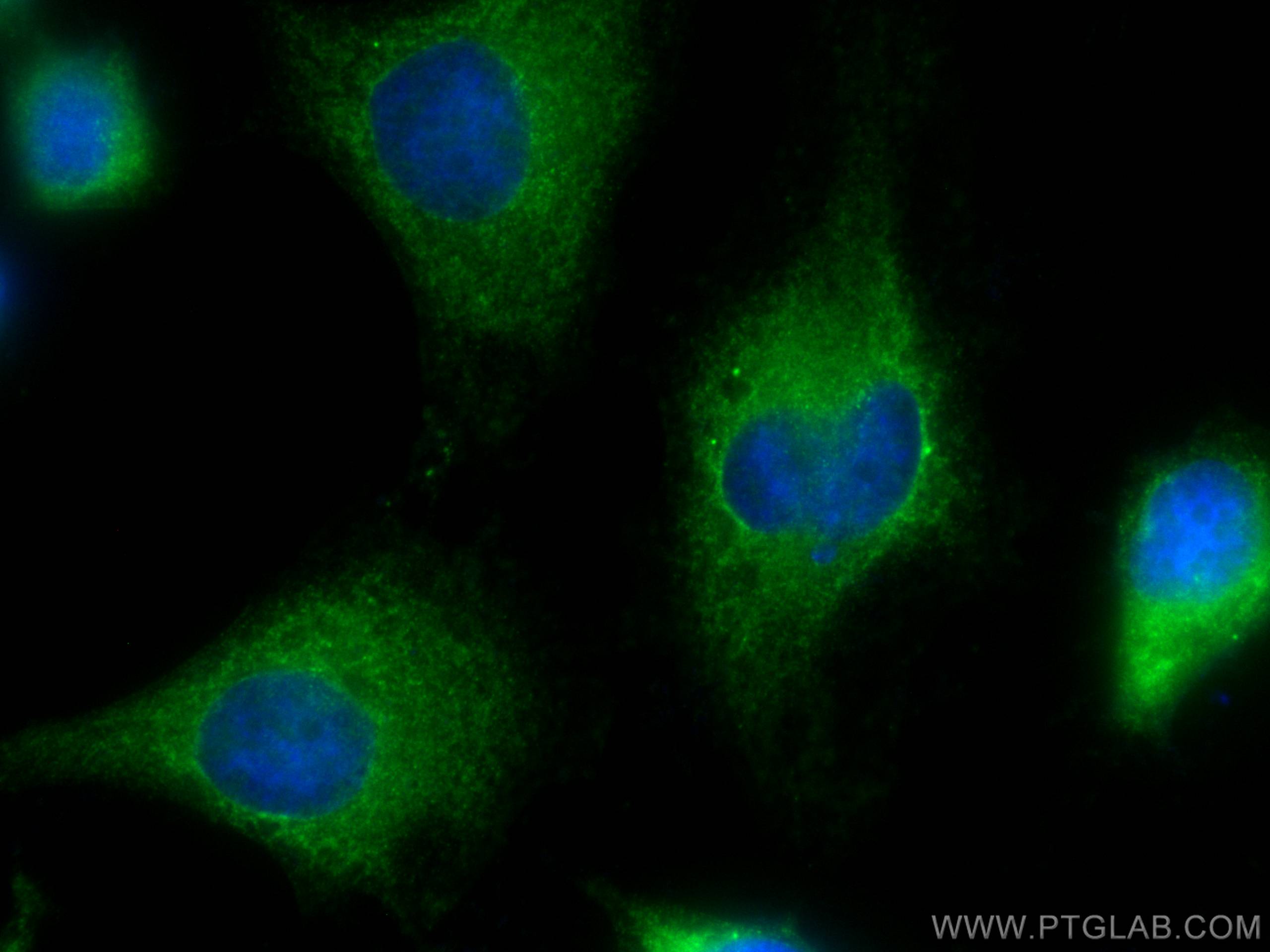Validation Data Gallery
Filter:
Tested Applications
| Positive IF/ICC detected in | HeLa cells |
Recommended dilution
| Application | Dilution |
|---|---|
| Immunofluorescence (IF)/ICC | IF/ICC : 1:50-1:500 |
| It is recommended that this reagent should be titrated in each testing system to obtain optimal results. | |
| Sample-dependent, Check data in validation data gallery. | |
Product Information
CL488-67144 targets URG4 in IF/ICC applications and shows reactivity with Human, mouse, rat samples.
| Tested Reactivity | Human, mouse, rat |
| Host / Isotype | Mouse / IgG2a |
| Class | Monoclonal |
| Type | Antibody |
| Immunogen | URG4 fusion protein Ag28635 相同性解析による交差性が予測される生物種 |
| Full Name | up-regulated gene 4 |
| Calculated molecular weight | 922 aa, 104 kDa |
| Observed molecular weight | 104 kDa |
| GenBank accession number | BC018426 |
| Gene Symbol | URG4 |
| Gene ID (NCBI) | 55665 |
| RRID | AB_2919427 |
| Conjugate | CoraLite® Plus 488 Fluorescent Dye |
| Excitation/Emission maxima wavelengths | 493 nm / 522 nm |
| Form | Liquid |
| Purification Method | Protein A purification |
| UNIPROT ID | Q8TCY9 |
| Storage Buffer | PBS with 50% glycerol, 0.05% Proclin300, 0.5% BSA , pH 7.3 |
| Storage Conditions | Store at -20°C. Avoid exposure to light. Stable for one year after shipment. Aliquoting is unnecessary for -20oC storage. |
Background Information
URG4 (upregulated gene 4), also known as upregulator of cell proliferation (URGCP), is an oncogene which is involved in the development and progression of various tumors. URG4 is upregulated in hepatocellular carcinoma (HCC), ovarian cancer, and other types of cancer. Overexpression of URG4 not only results in tumour progression but also in metastasis and recurrence.
Protocols
| Product Specific Protocols | |
|---|---|
| IF protocol for CL Plus 488 URG4 antibody CL488-67144 | Download protocol |
| Standard Protocols | |
|---|---|
| Click here to view our Standard Protocols |
